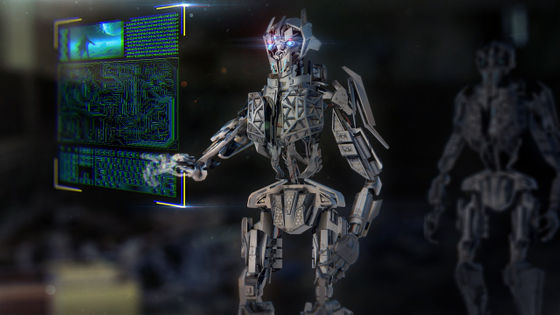Microsoft ridicules AI lawsuit as ``apocalyptic futurism'' and compares newspaper companies to the movie industry of yesteryear, which opposed VCRs

The New York Times, a major American daily newspaper, sued OpenAI and Microsoft for copyright infringement in December 2023, claiming that ChatGPT plagiarized the article. In response to this lawsuit, Microsoft filed a motion to dismiss with the court on March 4, 2024, denying that The New York Times' prediction that AI would destroy news reporting was unrealistic. .
Microsoft derides 'doomsday futurology' of New York Times' AI lawsuit
https://www.ft.com/content/1cc0c759-946c-41c8-ae0e-b2d8c4c09586
Microsoft Counters New York Times' AI Lawsuit Claims with 'Doomsday Futurology' Critique
https://bnnbreaking.com/tech/microsoft-counters-new-york-times-ai-lawsuit-claims-with-doomsday-futurology-critique
In a brief filed in the U.S. District Court for the Southern District of New York, Microsoft denounced The New York Times' claims against the company as 'doomsday futurology. ' He pointed out that it was the same as the Hollywood studios that tried to prevent the spread of.

According to the British economic newspaper Financial Times, The New York Times, which was the first major American media company to sue chat AI, said, ``Microsoft and OpenAI illegally copied millions of articles to build their programs.'' , tried to take a free ride on the significant investments we have made in journalism.'
In response to complaints that AI is being created through copyright infringement, Microsoft said, ``Copyright law is a big problem, just as it was with VCRs, player pianos , photocopiers, PCs, the Internet, search engines, etc.'' It is not a barrier to language models, and the content used to train tools like ChatGPT does not replace copyrighted material.'
Microsoft's lawyers went on to argue that the case of copyright infringement presented by The New York Times in its original complaint was due to 'unrealistic prompts' and 'how real-world users would interact with GPT-based tools.' They also criticized that it did not reflect whether people were using the system.
Microsoft's assertion supports OpenAI's view that ``The New York Times hacked ChatGPT and manipulated it to output copies of its own articles.''
In the OpenAI vs. New York Times trial, OpenAI claims that ``The New York Times hacked ChatGPT to extract its own articles'' - GIGAZINE

'The New York Times has not shown that anyone other than the defense team actually uses ChatGPT in this way, and its claims do not appear to be as exaggerated as the paper has been exaggerating to its readers,' Microsoft said. Nor is it equivalent to apocalyptic futurism.'
Separate from Microsoft's complaint, OpenAI stated in its own motion to dismiss filed in February 2024 that ``ChatGPT is not a replacement for a subscription to The New York Times'' and ``In the normal course of events, you would be free to make newspaper articles available through ChatGPT.'' 'You can't do that,' he told The New York Times.
The New York Times is not the only one suing AI companies for copyright infringement; major media outlets such as The Intercept, Raw Story, and AlterNet , as well as multipleauthors , have filed lawsuits against OpenAI and others.
From these points of view, this lawsuit, which marks the first full-scale collision between an AI company and old media, represents the 'growing pains' associated with the spread of advanced AI in various fields including journalism, as well as the It is positioned as highlighting the urgent need to create a legal framework that can respond to the rapid advances in AI technology while protecting the interests of people.
Related Posts:
in Software, Posted by log1l_ks






